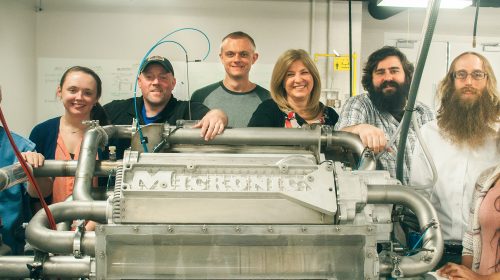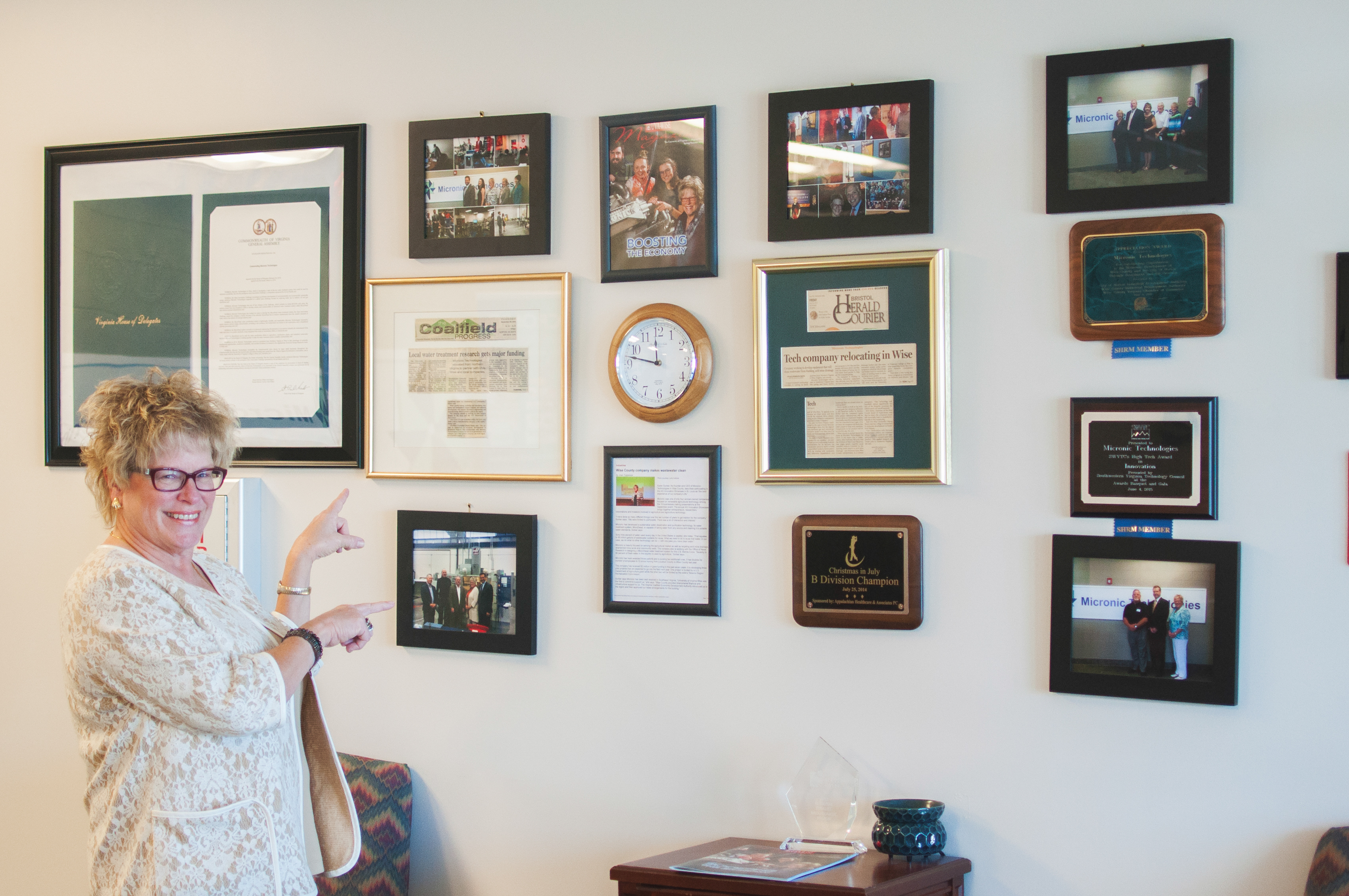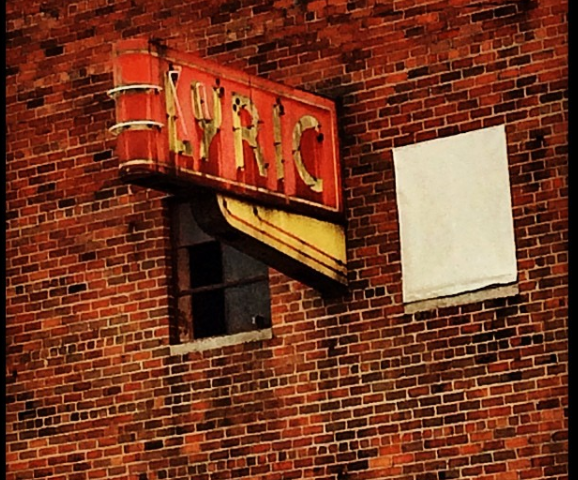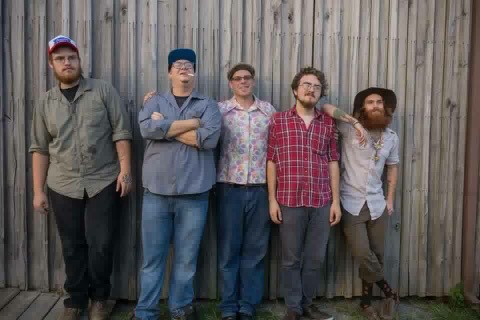Operation Tomorrow’s Workforce – A series brought to you by United Way of Southwest Virginia
Karen Sorber and her husband Kelly Rock started Micronic Technologies in 2008. The story about how
the company began is just as interesting as what the company does.
Sorber said, “In 2007, a year prior to me marrying my husband, I was in Peru on a humanitarian visit. I
saw these young children that lived without water, and the impact of that on their lives and their health.
I came away committed that one day I would be able to do something to help people in Peru and Africa
get water. Then, Kelly and I reconnected through a mutual friend. I mentioned my idea about providing
water to them, and he said he had an idea about how to clean water.”
A year later, they were married and began a start-up company, Micronic Technologies, both determined
to make a lasting impact on the world by creating a technology that could clean water from any source.
Though Micronic is a start-up, Karen Sorber and Kelly Rock are all but inexperienced.
Karen Sorber is the Chief Executive Officer of Micronic Technologies. She projects authority, leads with
charisma, confidence, and relentless determination. She has more than 35 years of experience in
building and leading private and federal organizations. She has delivered studies and assessments in
policy, management, and the technical aspects of federal acquisition.
Kelly Rock is her husband, the Chief Technology Officer, and the inventor of Micronic’s innovative
technology, MicroEVAP™. Rock is a quiet, intellectual creative with an unrelenting imagination. He
previously invented 21 patented automotive, medical, and water technologies, and now holds five
patents, which he has assigned to Micronic.
Together, with their growing team, they’ve built a company. “Did I think it was going to take 8 years and
almost 5 million dollars to even get to where we are?” Sorber said. “No, I didn’t.” She also didn’t think
they’d end up in Southwest Virginia.
In the late 2000s, Sorber was in an entrepreneurial development program with the Northern Virginia
Technology Council. Through connection after connection, she was introduced to the support available
for this type of innovation and this type of start-up in Southwest Virginia. She was introduced to
supportive county leaders. She was introduced to strong economic development officials. She was
introduced to a college willing to share its research and development resources. She applied for multiple
grant opportunities, and in 2013 and 2014, because of new grant funding amounting to over $3 million
from UVa-Wise, the VA Tobacco Commission, the US Department of the Navy, and the US Department
of Agriculture, Micronic Technologies relocated to Wise, VA.
MicroEVAP™, the patented water purification technology created by Micronic, is basically a tornado that
separates water from contaminants via evaporation, compression, and condensation – cleaning it from
any source at less cost, more efficiently, and more effectively than any other technology on the market.
“It is really about trying to bring water to people, ultimately,” said Sorber. What she could never have
predicted was that Micronic’s innovative technology would bring the people of Southwest Virginia more
than clean water. It would bring hope to an entire region.
She knows that the coal industry’s economic decline has displaced a lot of workers. After moving to
Southwest Virginia, she realized her husband’s invention could have even more impact. “We could put
coal miners back to work,” she said. “They’re not just older guys, you know. Some are in their 30s, 40s,
and 50s, and they have skills that would transfer to another industry. The miners are used to being
outside, they’re used to working with heavy equipment. They could cultivate the rare earth elements
from the acid mine drainage brine using our technology. We can license our technology and they could
make a living on it, and they could solve a problem – solve a lot of problems.”
She brings hope with her ideas to help the coal miners once Micronic’s technology is developed, and she
also brings hope to members of the current workforce. Since moving to Southwest Virginia, Micronic
Technologies has hired almost a dozen people to help during the R&D process, creating jobs for
employees who may have had to find employment outside of the region otherwise.
Now, she is bringing hope to the workforce of tomorrow. Micronic’s partnership with UVa-Wise allows
faculty and students to be involved in almost every step along the way, including conducting water
quality testing, creating simulations, and collecting data – giving students hands-on experience even
before they graduate college. As of now, she has hired five individuals that started as interns at
Micronic, including Brianna Stallard, a graduate of UVa-Wise who Sorber says now plays a huge role in
the company’s day-to- day operations.
Brianna Stallard, the Operations Coordinator for Micronics, said, “I wanted to stay in Southwest Virginia
after graduating college. I wasn’t sure I was going to be able to find a job here in my field, so I started
working in retail after I graduated with my Bachelor’s in Health and PE from UVa-Wise. When I was
working on my Masters in Environmental Health, I sent out emails to different environmental companies
trying to get an internship and experience. I sent Micronic an email one day, got an interview, started as
an intern, and after three months, I had a full-time job. Now, almost three years later, here I am dealing
with just about every aspect of the company – I mean every little thing – and I love it.”
Sorber has created a company culture where everyone should be heard from and the traditional
hierarchy pyramid structure has turned more into a flat, collaborative environment, which is supported
by a self -directed work team. She has seen the potential in many of the younger members of the
workforce, and continues to guide them to reach their full potential.
Stallard says, “All we ask for when we graduate is for someone to believe in us.” And Sorber believes in
her employees.

Sorber continues to nurture innovation and invest in Southwest Virginia’s workforce, and she’s not done
yet. It’s not an easy task to develop technology that could put an entire industry back to work or give the
entire world access to clean water. It takes time to research and develop. It takes investments from
companies who believe in their mission. It takes dedicated employees who are okay with not getting
bonuses or raises until the product makes revenue. Micronic incentivizes and rewards the staff as a
team with stock options based on company goals. It takes innovation and strategy to bring the product
to scale. And it takes the support of a community to allow the development of an innovative technology
with the potential to change Southwest Virginia and the world.
Sorber said, “I am starting to get stronger leads into some significant players in the water field, but it is
hard. Once it’s fully developed, we will either license the technology to a number of companies, or we
ultimately plan to exit with an acquisition of the company. When that happens, we will likely continue to
manufacture here. We just won a new tobacco commission grant that would ready us for manufacturing
and sales next year, but we are looking for investors to match that, which is really important. That’s my
next big goal, because once we have investors to match that grant, we will make it into the marketplace
to sell, and will become much more financially stable, shifting out of the R&D environment. Once you
get to market, and you are post revenue, and you are making sales, then it is not hard to get investment
to grow. It is very hard to secure money right now – very, very hard – blood, sweat, and tears. We want
to get to production with this new grant and investor match in the next year or two, and then we want
to scale it to a larger level, because bigger is better in water purification, and we have people wanting to
buy it now.”
Sorber knows that success for the product means success for people she cares about. “This technology
has the potential to change this region and the world. But additionally, and personally, I really want Kelly
to have his day. I want him to see his success – a very strong success of a product going to market. He
has 26 patents and he has seen a lot of development in other companies and had some successes early
on, but this would allow him to take a piece of technology to market that really can help people. Then, I
want to sell the company at some point and give my well-trained employees the rewards that they
deserve financially for what they have done.”
Nationally and internationally, Micronic Technologies recently received a commendation from the
Commonwealth of Virginia, was cited by the White House Water Summit, and won the Open Innovation
Challenge award from Statoil of Norway and General Electric. Locally, Micronic is planning several pilot
projects this year: one in Lee County and one in Wise County to address mine drainage, and two more
pilots in Wise County and at the Virginia Tech agricultural dairy farm to address agricultural runoff.
Next steps for Micronic Technologies include securing match money from investors; developing licensing
agreements with large strategic partners to commercialize MicroEVAP; and establishing relationships
with non-governmental organizations to deploy the technology in developing countries.
The company’s future for preserving water resources is very promising, and so is the company’s future
for preserving another valuable resource – Southwest Virginia’s people. Micronic Technologies has
grabbed the attention of the industry, inspired the local workforce, and currently serves as an example
of a growing innovative business, right here in Southwest Virginia.
Article 2/11. The written “Operation Tomorrow’s Workforce” series was created by United Way of
Southwest Virginia. The introductory article was released in May 2017, with nine articles to be released
online on the first and third Sundays from May-September, and published in various print publications
across the region. Each of the nine articles will explore current challenges in Southwest Virginia’s
workforce and showcase the valuable members of the workforce in Southwest Virginia. The series will
share the stories of local workers and discuss topics that specifically affect our workforce in Southwest
Virginia such as local livable-wage jobs, local innovation, the value of working at an early age, the
uniqueness of the community college system, and combining passion with skill – just to name a few.
Then, our last article will provide an overview of the actions being taken to bridge the gap between the
worlds of learning and work in our region to strengthen the workforce of tomorrow. To keep up with the
full series of articles, or for more information about United Way of Southwest Virginia’s initiatives to
equip tomorrow’s workforce, visit UnitedWaySWVA.org.





